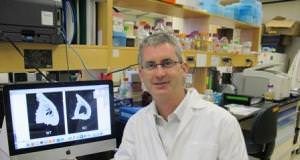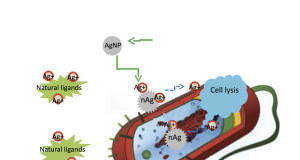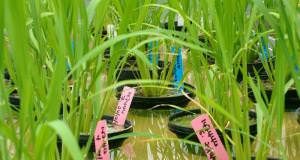Diets High In Salt Could Deplete Calcium In The Body
When sodium leaves a body, it takes calcium along with it, creating risk for kidney stones and osteoporosis. The scientific community has always wanted to know why people who eat high-salt diets are prone to developing medical problems such as kidney stones and osteoporosis.
How Natural Drug, Abscisic Acid, Fights Inflammation
Researchers at the Virginia Bioinformatics Institute at Virginia Tech have discovered how abscisic acid, a natural plant hormone with known beneficial properties for the treatment of disease, helps fight inflammation. The results, which are published in the November 2010 Journal of Biological Chemistry, reveal important new drug targets for the development of treatments for inflammatory and immune-mediated diseases.
Botanical Compound Could Prove Crucial To Healing Influenza
Building on previous work with the botanical abscisic acid,* researchers in the Nutritional Immunology and Molecular Medicine Laboratory (NIMML) have discovered that abscisic acid has anti-inflammatory effects in the lungs as well as in the gut. The results will be published in the Journal of Nutritional Biochemistry.
The Facts On Magnesium Stearate
A few companies and some alternative health “professionals” have whipped up pointless concern over the inert flowing agent used in dietary supplements known as magnesium stearate. In each case the motivation appears to be one of promoting their own products – typically products lacking in actual quality of ingredients for the price being charged. As a leading expert on the subject of dietary supplement quality I have written this brief review to set the record straight and point out the flagrant misrepresentation behind such assertions.
Ions, Not Particles, Make Silver Toxic to Bacteria: Too Small A...
Rice University researchers have settled a long-standing controversy over the mechanism by which silver nanoparticles, the most widely used nanomaterial in the world, kill bacteria. Their work comes with a Nietzsche-esque warning: Use enough. If you don't kill them, you make them stronger.
Engineering Better Hair Transplants
A hair-raising trick may lead to better hair transplants. Engineered hair follicles patched into skin can be coaxed to connect to surrounding tissue and to grow hair in an organized way, a study in mice finds. Unlike current hair transplant methods, which simply move existing hair follicles from one area of the scalp to another to cover a bald region, the approach would spur the creation of new hair follicles from existing cells.
Severe Sleep Apnea Tied To Four-Fold Increase In Cancer Risk
Obstructive sleep apnea, a breathing disorder linked to heart disease and depression, may heighten the risk of cancer as well. A two-decade study shows that people with severe sleep apnea could be four times as likely to die of cancer as people without the condition.
Hormone Curbs Depressive-Like Symptoms In Stressed Mice
A hormone with anti-diabetic properties also reduces depression-like symptoms in mice, researchers from the School of Medicine at the UT Health Science Center San Antonio reported July 9.
Good News About The Glycemic Index Of Rice
Research analysing 235 types of rice from around the world has found its glycemic index (GI) varies from one type of rice to another with most varieties scoring a low to medium GI.
Discovery Of Epigenetic Links In Cell-Fate Decisions Of Adult Stem Cells...
The ability to control whether certain stem cells ultimately become bone cells holds great promise for regenerative medicine and potential therapies aimed at treating metabolic bone diseases.
Simple Exercises Are An Easy And Cost-Effective Treatment For Persistent Dizziness
A professor from the University of Southampton has called on doctors around the world to give patients with persistent dizziness a booklet of simple exercises, after new research has shown that it is a very cost effective treatment for common causes of the condition.
Cutting Daily Sitting Time to Under Three Hours Might Extend Life...
Restricting the amount of time spent seated every day to less than 3 hours might boost the life expectancy of US adults by an extra 2 years, indicates an analysis of published research in the online journal BMJ Open.

















